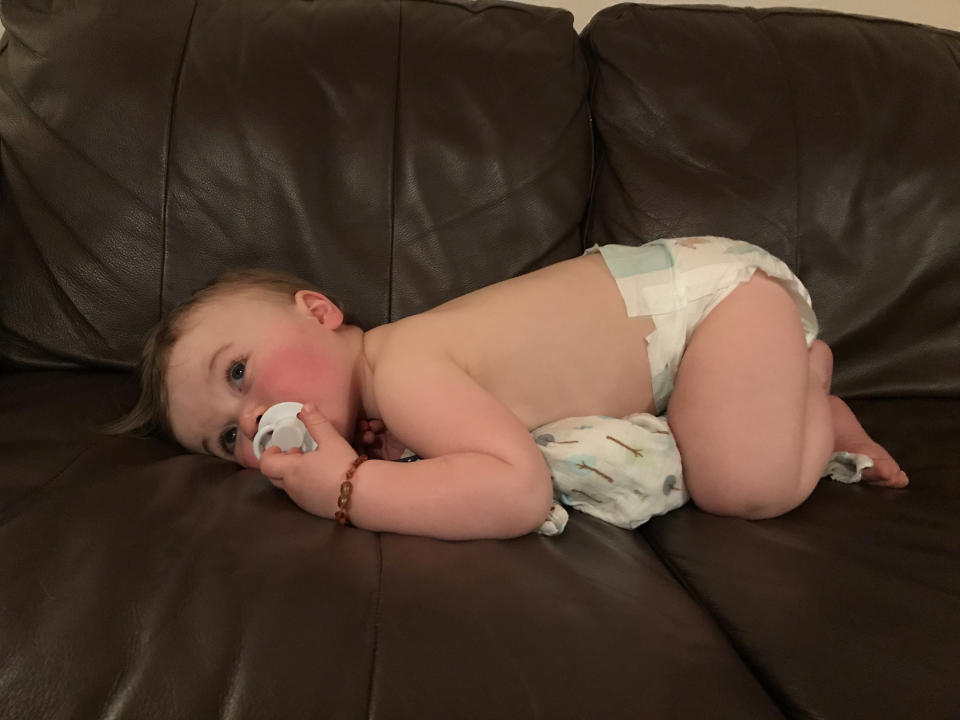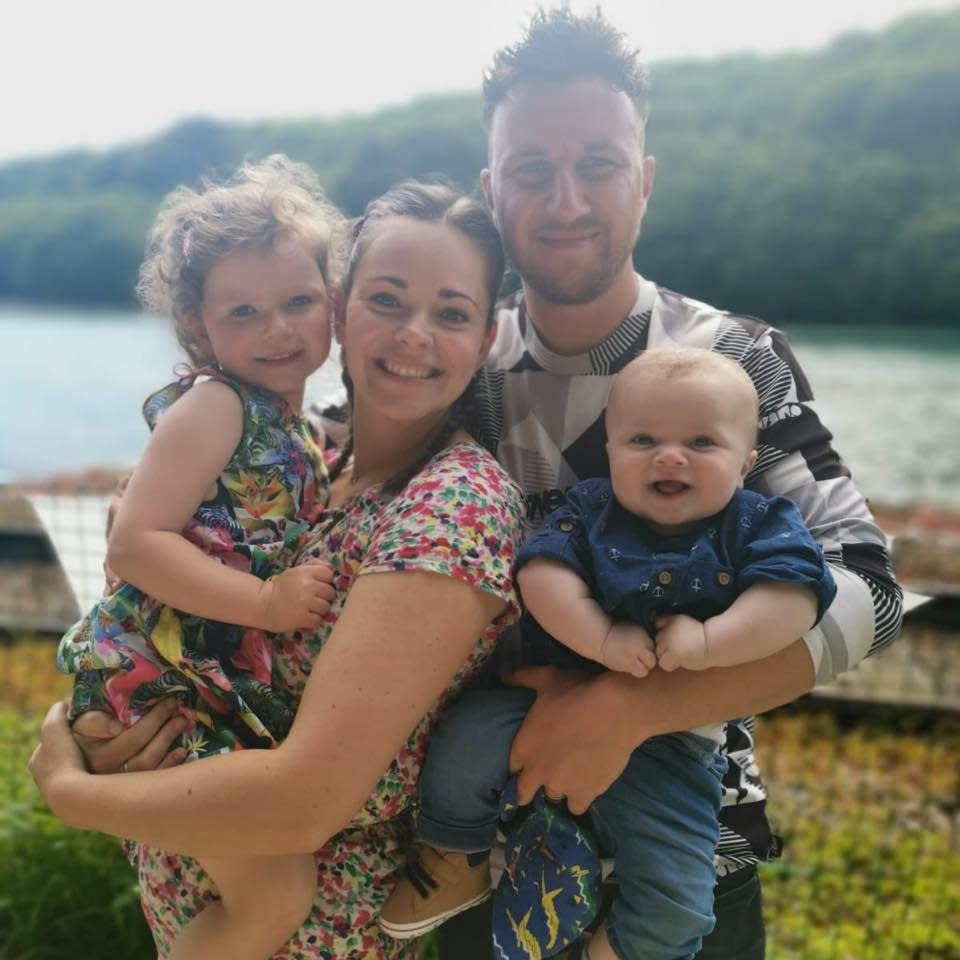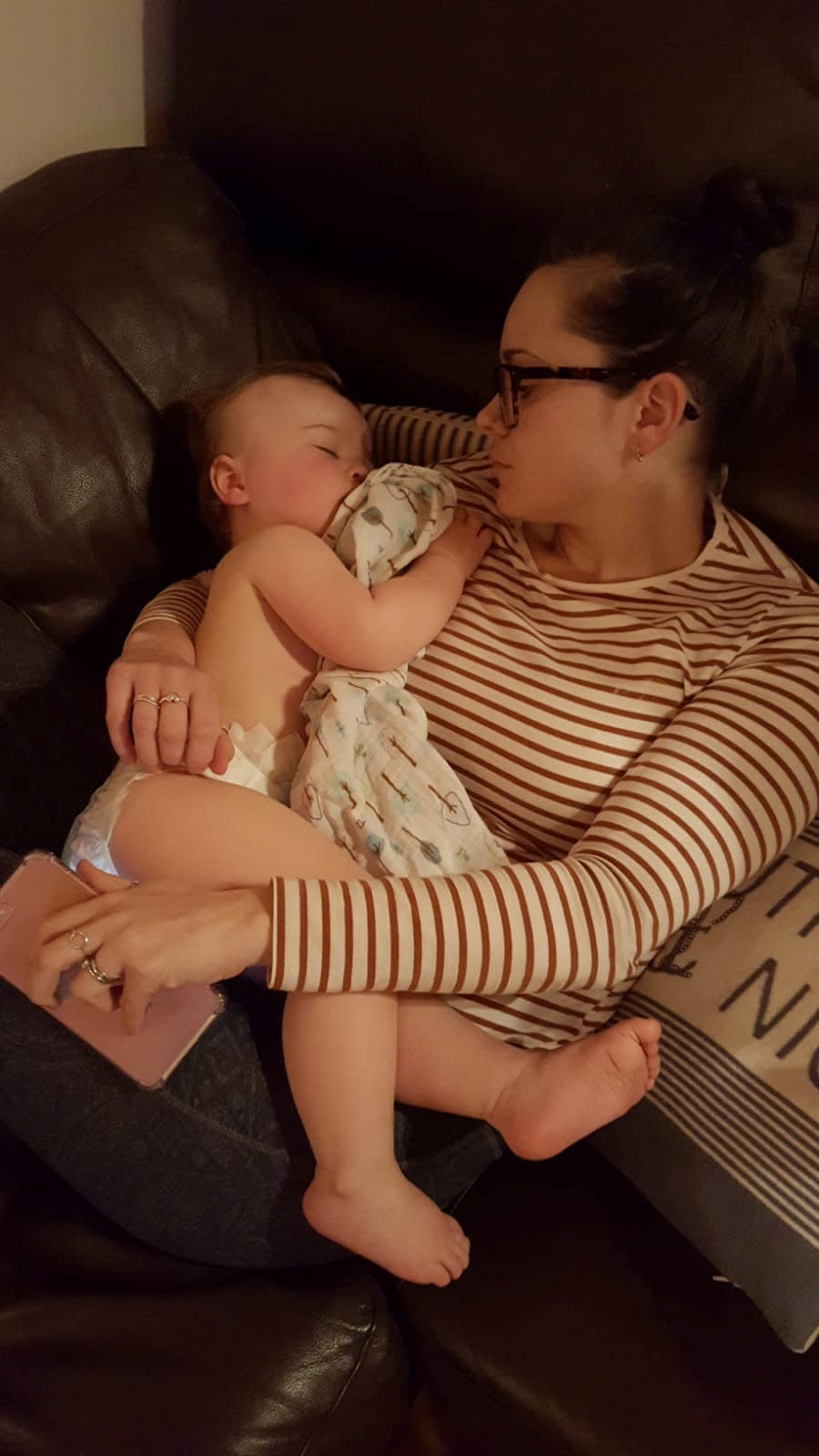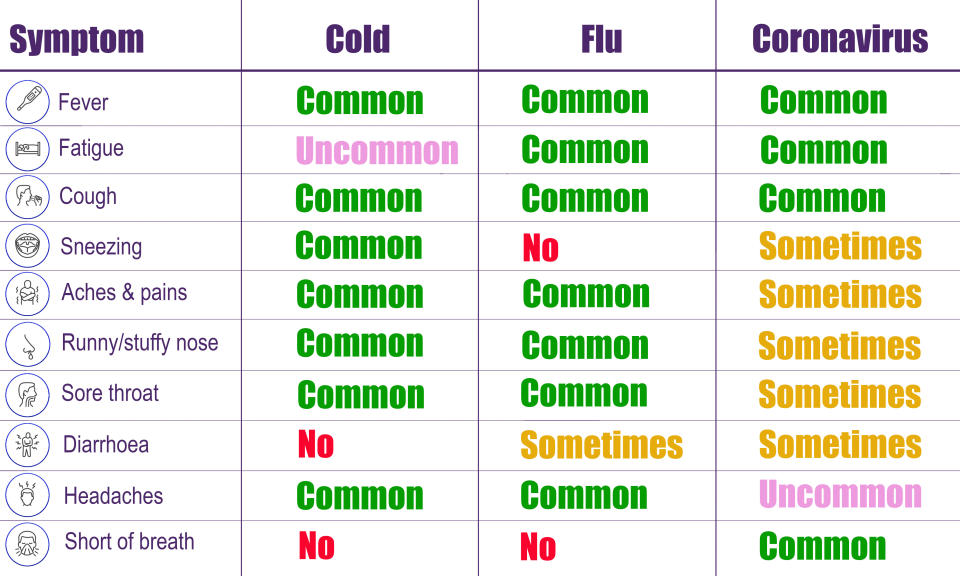One-year-old baby is thought to have coronavirus after his mother dismissed his fever for 'teething'
A one-year-old baby is thought to have the coronavirus.
Jess Mitchell thought her son Perran was teething when he began acting irritable and developed a “roaring temperature” on Mother's Day.
Later on Sunday afternoon, his fever became “horrendous” like he was “on fire”.
Mitchell, 32, called the non-emergency number NHS 111 and was put through to a “reassuring” doctor who said Perran “should bounce back”.

Latest coronavirus news, updates and advice
Live: Follow all the latest updates from the UK and around the world
Fact-checker: The number of COVID-19 cases in your local area
Explained: Symptoms, latest advice and how it compares to the flu
The family, from Looe in Cornwall, are following the government’s guidelines to self-isolate entirely for 14 days if one member of the household develops the tell-tale cough or fever.
Only patients in hospital are routinely being tested for the coronavirus in the UK.
Although Perran is expected to make a full recovery, Mitchell believes it is “vital” she “puts the message out” that babies can be carriers of the infection.

“It was Mother's Day and he woke up in a bit of funk with a temperature, but we thought he was badly teething,” said Mitchell, who works in administration for the Devon and Cornwall Police.
“We got up early to get some fresh air and thought the cold could help with his temperature but did not think much more of it.”
Around lunchtime, Perran took a turn for the worse.
“He went really lethargic and really cuddly, which was not like him,” said Mitchell.
“He then had a horrendous temperature. He had no breathing difficulties or a cough but was on fire with his temperature.”
Baby’s temperature hit 39C
Mitchell claims Perran’s temperature was more than 39°C (102°F). Average body temperature is 37°C (98°F).
She called NHS 111, despite official advice urging people to use its website due to the service being under strain.
“There is a lot of advice out there, but it is not clear for children and babies,” said Mitchell.
“We phoned 111 and after speaking to five different people we got through to a doctor who was really reassuring.”
Mitchell, her husband Joe, 33, and daughter Felicity, four, are in isolation for 14 days.

Mitchell is speaking out to stress no one is immune to the coronavirus.
“People think babies won't get it and it is vital we put the message out they do,” she said.
“They will get it but just might not get the severe repercussions. They can still be carriers though and that is what makes it dangerous.”
Most naturally fight the infection off without any hospital care.
The vast majority of deaths worldwide are occurring in the elderly or already ill.
Although Perran is expected to make a full recovery, the infection “has still knocked him for six”.
“He should bounce back, but it has still been a bit of a shock for us all,” said Mitchell.
“Perran is still not himself. He is really hot and is jerking awake. He is not really eating.
“As a mother it has been a horrible thing to go through”.
Boris Johnson told Britons on Monday evening to stay indoors apart from shopping for essentials and exercising once a day.
The prime minister previously said those self-isolating should not even leave to buy food or other essentials.
“I urge everyone to follow the guidelines”, said Mitchell.
“Anyone can get it, young or old.
“A baby or healthy 30-year-old might be okay, but it is the vulnerable people they might give it to that will die.”
Perran's father Joe also issued an appeal on Facebook.
“Please take this virus seriously,” he wrote.
“[NHS] 111 are telling us [Perran’s] symptoms are coronavirus. My son.
“The infection has got to him through means we cannot comprehend. This is real.
“Get indoors - nothing is more important than your health and that of your family.”

What is the coronavirus?
The coronavirus is one of seven strains of a class of viruses that are known to infect humans.
Others include the common cold and severe acute respiratory syndrome (Sars), which killed 774 people during its 2002/3 outbreak.
The coronavirus is thought to have emerged at a seafood and live animal market in the Chinese city of Wuhan at the end of last year.
It has since spread into more than 160 countries across every inhabited continent.
Since the outbreak was identified, more than 392,700 patients have been confirmed, of whom over 102,900 have “recovered”, according to Johns Hopkins University.
Coronavirus has spread to more than 160 countries

Globally, the death toll has exceeded 17,100.
Early research suggests four out of five cases are mild, however, pneumonia can come about if the infection spreads to the air sacs in the lungs, causing them to become inflamed and filled with fluid or pus.
The lungs then struggle to draw in air, resulting in reduced oxygen in the bloodstream and a build-up of carbon dioxide.
The coronavirus has no “set” treatment, with most patients’ immune systems fighting off the virus naturally.
In severe cases, hospitalisation may be required if a patient needs “supportive care”.
This may include ventilation while their immune system gets to work.
Hand-washing and social distancing are thought to be the best ways to ward off infection.




